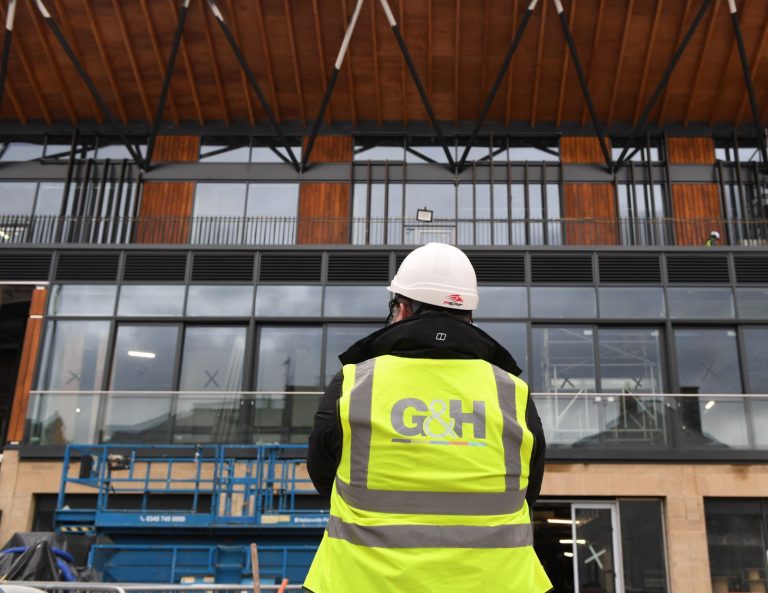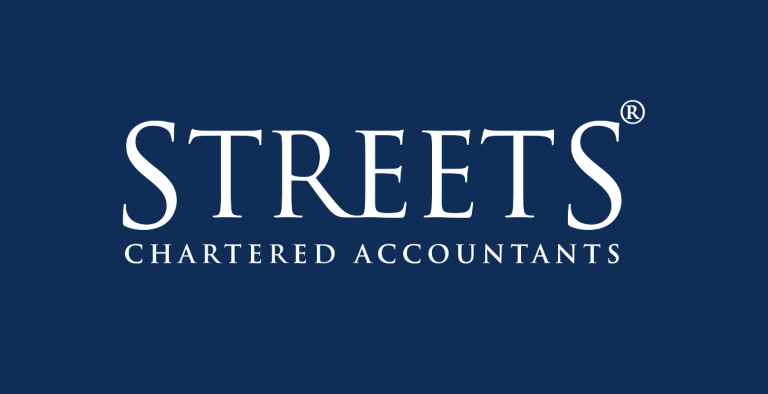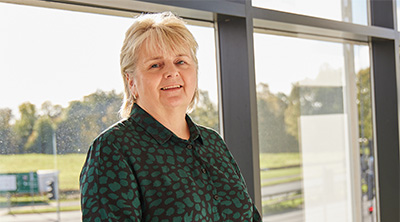Wind farm company launches new science programme for primary schools
DBS (Dogger Bank South) Offshore Wind Farms, owned and under development by RWE and Masdar, has launched a new STEM programme aimed at children aged between nine and 11 years old at eight schools along a route it’s proposing to use to bring electricity ashore.
The DBS Primary Schools Engagement Programme aims to raise awareness about offshore wind and the wide variety of skills and careers associated with it.
The programme will work with eight primary schools located along the proposed onshore export cable route for the DBS projects from Skipsea, where the cables would make landfall, to the new converter stations to the south of Beverely in the East Riding.
The DBS Primary Schools Engagement Programme has been launched in June at Molescroft Primary School in Beverley where 60 Year 6 pupils took part in a STEM Activity Day featuring a wind turbine business game.
Pupils took on roles as engineers and designers and worked as a team to develop wind turbine blades to establish whichwould produce the most cost-effective energy. They also learned about the steps needed to develop wind farms atsea and about the vast range of careers and skills required to support the sector.
Year 6 teacher at Molescroft Primary School, Ben Rowsell said: “It has been a very engaging day which the children have loved. The activity has highlighted every part of STEM, which is a big feature at our school, and has also shown the children real life application for maths.
“Any example where you can show children how science and maths is used in the real world and in the future is so useful. The careers element of the day has been a key part, showing the children jobs that they could be doing in the future. It’s been a really exciting day, the expertise in delivery and quality of the resources has been excellent.”
DBS representative and MD of UKSTEM Ltd, Mike Cargill added: “It’s been great to launch the DBS schools’ engagement programme at Molescroft Primary School. It was superb to see how engaged and enthusiastic the children were in taking part in the activities today.
“They were keen to learn about the industry and asked many fantastic questions about how offshore wind farms are developed and constructed. We hope that the programme will provide them with lots to think about and consider how they too could get involved in the future.”
Lindsey Oil Refinery owners expand in Scotland
Lindsey Oil Refinery owner the Prax Group has signed an agreement to acquire TotalEnergies’ interests in the Greater Laggan Area fields and the onshore Shetland Gas Plant, as well as its interests in several nearby exploration licenses. The transaction is subject to approval from the relevant authorities.
The Greater Laggan Area fields include Laggan, Tormore, Glenlivet, Edradour and Glendronach, located around 140 kilometres west of the Shetland Islands. Current production (for FY 2023) for TotalEnergies’ interests is at about 7,500 barrels of oil equivalent per day, made up of around 90% of gas.
Having acquired Hurricane Energy last year – a UK-based oil and gas exploration and production company with a 100 per cent operated interest in the Lancaster offshore oil field in the West of Shetland basin – this is a major acquisition transaction for the Prax Group, to further develop its E&P portfolio. This acquisition would see TotalEnergies’ interests become integrated within the Prax Group’s existing businesses, as part of the Group’s larger, long-term strategy.
Sanjeev Kumar Soosaipillai, Chairman and CEO of the Prax Group, said: “With a strong track record of integrating acquisitions and managing assets in the oil and gas value chain, the Prax Group is a long-standing and trusted partner of TotalEnergies. The announcement of the signing of this agreement is the culmination of many months of solid co-operation between our respective companies.
“Our strong balance sheet has enabled the Group to execute its growth strategy having successfully completed two major acquisitions last year, and with two other transactions in the pipeline, I am delighted that the Prax Group is able to announce its proposed expansion in West of Shetland, as part of our long-term plan to strengthen our position across the whole oil and gas value chain.
“Following a period of consolidation, we now have a clear path to achieve our vision and future-proof our company and are ready to continue implementing our strategy. The acquisition of TotalEnergies’ West of Shetland interests is the beginning of the next exciting chapter in our history.”
G&H Group appointed to £1.6bn Decarbonisation Solutions Framework
Leeds-based mechanical, electrical and public health service provider, G&H Group, has been appointed to Hull-headquartered Pagabo’s £1.6bn Decarbonisation Solutions Framework.
The framework, which will run for four years, will support public sector organisations completing building works in all areas excluding healthcare. Kingston upon Hull City Council (HCC) will serve as the contracting authority.
G&H Group will engage with end clients via Pagabo’s framework in two ways. Direct Award, when a client organisation or supplier contacts the procurement organisation and advises that they wish to work with the other. Further Competition, when the client doesn’t have a specific organisation on the framework in mind for their requirement.
The types of projects available via the framework include installation of specialist heating, cooling and ventilation systems, installation of renewable energy sources, and energy saving lighting, all of which play to G&H Group’s strengths.
Marc Ambler, group director at G&H Group, said: “The appointment of G&H Group to Pagabo’s Decarbonisation Solutions Framework is testament to our strong record supporting contractors and clients working towards net zero.
“At the heart of our work is the inclusion of sustainable, low carbon features. These elements have become standard practice for any MEP project we undertake. We are looking forward to drawing on our extensive experience and working with public sector organisations to achieve their decarbonisation goals.”
Jason Stapley, chief procurement officer at Pagabo, said: “Decarbonisation is a specialist service meaning that it was more important than ever to ensure the very best businesses were identified, which includes various SMEs in addition to some of the larger organisations too.
“With the growing focus on the role decarbonisation has to play in working towards and meeting net zero goals, we know that this framework – and its healthcare sister offering – will be well utilised by clients, helping them to meet their individual goals while working towards bigger picture goals at the same time.”
Tamsin joins Agrovista as East of England advisor
Agrovista has appointed Tamsin Roark as rural consultant for the east of England to help meet increasing demand from farmers requiring guidance on the Sustainable Farming Incentive and other agricultural policy initiatives.
Tamsin, pictured above, grew up near Woodhall Spa in Lincolnshire. She is a graduate of Bishop Burton College where she obtained a degree in agriculture.
After completing her studies she joined Limagrain in 2019 as a barley technician, before joining Pilgrim Foodservice, where part of her role included leading a project alongside Dyson Farming to set up national sales for Lincolnshire-grown beef and lamb.
Tamsin then spent 18 months working as a business and performance analyst for three local authorities, before taking up her role with Agrovista Rural Consultancy.
She said: “I realised I wanted to return to agriculture and saw this new position as a chance to develop my career and build on the business experience I had gained, particularly during my last role.
“It was very obvious through the application process that the company wanted to support my professional development. It’s an exciting time to be getting back into agriculture – there’s so much happening across the industry, technically and policy-wise.”
Tamsin, who primarily covers the east of England and part of the Midlands, advises mainly Agrovista customers, working closely with company agronomists who can provide valuable detail on each of their farms and additional advice on which options might work best.
She also works with new farming customers looking for support. Most of her work is SFI related, and she also advises on capital grants and helps with nutrient management plans, which she will take on fully once she is FACTS qualified.
“SFI is new to everyone and is constantly evolving, so there is plenty to go at,” says Tamsin. “No two farm businesses are the same and helping individual farmers to maximise the benefits of SFI alongside their ongoing farming operations is immensely satisfying.
“Agrovista Rural Consultancy is growing and becoming more prominent nationally. I’m really enjoying the role, being part of a team that can add real value to our farmers’ businesses.”
Ongo names new Director of Property
This month Steve Ellard becomes Ongo’s Director of Property , moving from his current role as Director of Assets and Sustainability at Yorkshire Housing/
As part of his new role Steve will be part of Ongo’s Executive Management Team and oversee the delivery of the repairs and maintenance services, and the development and regeneration of all stock and communities.
He replaces Pete Stones, who retired earlier this year after over 35 years in the industry.
Steve said: “Ongo has an excellent reputation for being both customer focussed and delivering great services. I was keen to be part of their journey and defining the next chapter.”
Recently Steve has taken a leading role in understanding net zero and the challenges and opportunities this brings, making him a great addition in achieving Ongo’s environmental, sustainability and retrofit aims.
He continued: “I’m excited about getting to grips with our biggest challenges and working with some brilliant colleagues to solve them – therefore delivering even better services to our customers.
“Whether it’s the development of new homes, investment in our existing homes or the day to day repairs service that our customers value so highly – I want Ongo to be delivering excellent services in all of these areas.
“There’s pressure on the sector at present to illustrate that homes are decent and fit for our customers – and rightly so. That’s the least that me, my colleagues and our customers expect, and we’ll be working hard over coming months to achieve this.”
Steve Hepworth, Chief Exec at Ongo said: “We are delighted to be welcoming Steve as our new Property Director. I believe he will be a real driving force for positive change at a time when we’re facing lots of challenges in the areas he will oversee.
“The interview panel were impressed with Steve’s commitment to delivering excellent services and the tenants who took part in the selection process praised his knowledge and commitment to listening to their views.”
Streets Chartered Accountants covers election concerns, trivial benefits and more in new news roundup
Streets Chartered Accountants covers election concerns, trivial benefits, and more in its latest monthly news roundup.
What might businesses want from the next government?
The wait is over and we now have a date for a general election, the 4th July. Whilst many will have been pressing for and wanting an election, how many of us have considered why or what we really want from the next government? Whilst individuals will no doubt have their own thoughts and asks, these invariably will be unique to them. When it comes to businesses there is probably a more collective thought or ask. Read More
Employment, workforce and skills election special
This special episode of The Streets Sessions, with guests Anita Wynne, CEO of Beststart Human Resources, and Taj Rahil, Partner and employment law specialist with leading law practice Fladgate LLP, focuses on the election and what the main party manifestos have in store for employers and employees, as well as addressing workforce skills shortages and managing migration. Listen Now
Small perks, big impact: keeping your team happy
In today’s competitive business landscape, finding and retaining great staff can feel like finding a needle in a haystack. But did you know that something as simple as trivial benefits can make a significant difference? Trivial benefits are small perks that don’t attract tax. Think coffee vouchers, seasonal gifts or a team lunch. These little tokens of appreciation can work wonders for morale and loyalty across all industries. Read More
Bloodstock industry benefits from Streets Bloodstock’s new Taxation Guide for 2024
Streets are excited to announce the publication of the 2024 Bloodstock Tax Guide, in association with The Thoroughbred Breeders’ Association. This specialist guide has been produced in response to the members of the association seeking advice and guidance on the specific tax implications and treatments for those involved in the sector and in particular breeders. This new guide supersedes the Horseman’s Group guide for bloodstock taxation advice. Read More
Banking & Finance services for clients – business funding options available
There are numerous reasons why many clients are using Streets’ Banking and Finance services. Their dedicated in-house team are easy to access, work with your accountants and are situated within Streets offices providing an expert knowledge in all areas of finance. Like your accountant they always have the client’s and their businesses’ best interests at heart. Whatever your funding requirements are it pays to engage with experts to support you, who have access to whole of market to secure the right funding solution for your business needs. Read More
HMRC wrongly refund voluntary Class 2 National Insurance payments
This incorrect refunding may have significant effect on many individuals in the future when the time comes to receive their state pension and other contributory benefits. Each year, Class 2 National Insurance is collected via self assessment returns and payments transferred through self assessment to each individual’s National Insurance record by HMRC. However, all Class 2 contributions need to be paid by 31 January for the contributions to be accepted by HMRC systems. Read More
United Living acquires training specialist and heat pump system design app
United Living Group, the provider of infrastructure, affordable housing, property services, and telecoms, has acquired a majority stake in both GTEC Training Limited, a training specialist, and Thormer Solutions Limited, developer of Heatly, a digital tool that makes heat pump system design, surveying and installation easier.
With over 15 years’ experience, GTEC specialises in closing industry skills gaps and providing formal qualifications and retrofit training in the net zero space across the UK and further afield. GTEC’s training courses cover heat pump, solar PV, battery storage, solar thermal, biomass, EV charging and energy efficiency, plus a wide range of bespoke training programmes for larger clients.
In the last four years, GTEC has delivered over £3 million of funded training places through various government schemes, and its work on technical committees is helping to shape national and worldwide industry standards.
The training provider has expanded its range of training courses and its geographic coverage rapidly, from a single site in Hawes, North Yorkshire, to over 19 locations throughout the UK and the Channel Islands.
GTEC will continue to operate as a standalone business delivering training to the wider market and will also support United Living’s group-wide training requirements and those of its customers.
Thormer, a subsidiary of GTEC, has developed a unique integrated software package and app, Heatly, which digitalises, expedites and improves heat pump design and installation accuracy. Combined with a decarbonised energy mix, heat pumps are a key component of the global energy transition. Heatly will revolutionise the process and accelerate implementation.
Neil Armstrong, chairman and Chief Executive Officer of United Living Group, said: “In line with our commitment to provide high quality, technology-enabled services and to expand our highly skilled workforce, we are pleased to announce the acquisition of a majority stake in GTEC Training and Thormer Solutions.
“This acquisition will help us to address one of the key challenges facing us, our clients and industry as a whole; which is to bridge the skills gap and expand workforce capability and capacity.
“The Heatly app fits perfectly with our strategy to incorporate innovative, leading-edge technology into our service offering in order to help our clients optimise and decarbonise their business operations and assets.
“We look forward to working closely with GTEC Training and the Thormer Solutions team to provide additional tailored skills training on behalf of all our customers and the wider UK economy.”
Griff Thomas, Managing Director of GTEC Training and Thormer Solutions, said: “Joining the United Living Group is the ideal fit for GTEC and we are excited about the opportunities and growth this investment will bring.
“Like us, United Living is committed to promoting and contributing to a sustainable future, and through their support we can bring our industry-leading training to a wider audience, as well as directly supporting United Living’s training needs and those of its customers.
“Heatly is set to be a real game-changer for the heat pump sector, removing some of the barriers to take-up and improving outcomes for installers and their customers. The investment brought by United Living will accelerate our market deployment and make Heatly the go-to digital solution for wide-scale heat pump deployment.
“With Heatly’s cutting-edge building scanning techniques and United Living’s reach into other related sectors, heat pumps are just the beginning.
“This is an exciting stage in GTEC’s history, and we are thrilled to have the backing of such a well-respected organisation.”
Council sets up free advice session in Goole
East Riding of Yorkshire Council is hosting an event at Goole Library on Wednesday 10 July at which it will highlight initiatives available to support businesses.
The council’s Business Support Services team can provide everything from help securing grant funding and independent one-to-one advice to free workshops and events for business owners to attend. They also manage The Supply Chain Network, an online directory that enables businesses to showcase their products and services, and gain easy access to opportunities to win more work.
Teams representing Goole Town Deal and two of the projects that it funds – Opportunity Goole and the Property Activation Fund – will also attend. Opportunity Goole provides free access to information about workforce development, helping local people to gain the knowledge and skills they need to secure employment and ensuring that employers can recruit local people with the skillset that they’re looking for. Meanwhile, the £4 million Property Activation Fund grant scheme was set up to encourage property owners, developers and tenants to carry out improvements to buildings in the town centre and bring empty or under-used sites back into use.
The council’s Adult Learning Team will also be present to showcase the diverse choice of learning and training opportunities on offer to help businesses upskill their workforce.
The event will take place within Goole Library on Carlisle Street in the town centre, where there will also be a chance to find out more about the network of Business and Intellectual Property Centres (BIPCs) based within East Riding of Yorkshire Council-run libraries. BIPCs provides specialist business information and resources for anyone thinking of setting up or growing a business.
Dawn Hall of Invest East Yorkshire’s Business Support Services team said: “There’s a comprehensive range of advice, support, training, events, guidance and more on offer to local businesses of all sizes and from all sectors. The aim of this free drop-in event is to bring them all together at one venue so that local businesses can call in to chat to the various teams and get a clear insight into what’s available to help them to grow and develop.”
The event will be open from 4pm to 7pm and representatives of local businesses are welcome to drop in at any time throughout the session.
City Council appoints Ridge to undertake further District Heat Network surveys
Hull City Council has appointed Ridge and Partners to provide further topographical and utility surveys as part of Phase 1 of its Hull District Heat Network.
Ridge will conduct these additional surveys around Cambridge Street flats and at buildings on Osborne Street, St Luke’s Street, Great Thornton Street and Portland Street.
HDHN was initially based around the city centre and immediate surrounding area, however further streets, such as Cambridge Street and Great Thornton Street, have now been included.
The topographical surveys, which will take place over the next few weeks, will map the features of the site, such as height and boundaries, to determine the precise locations to support the project development and design process.
Utility surveys will be undertaken using ground penetrating radar which is a non-invasive method to locate and map features below the ground, so that planning for any protection or movement of utilities can be undertaken.
These are required to support the council to fulfil its objective of developing the Phase 1 district heat project, which will deliver low carbon heat to the city centre, serving both public and private buildings, as well as business and residential accommodation, both existing and new build.
Rory joins East Yorkshire-based ironmongery specialists
Rory Summers has joined East Yorkshire ironmongery specialist FR Scott as a Senior Account Manager.
He has more than 28 years’ experience in the ironmongery industry and is a registered Dip GAI (Diploma of the Guild of Architectural Ironmongers).
The company says Rory’s appointment further strengthens its position as a leader in ironmongery supply to construction, joinery and modular businesses. He said: “I’m extremely excited to join FR Scott. They are well known in the industry as a reliable, trusted, value for money ironmongery supplier.
“From the outside looking in I have seen them excel in recent years, growing their ironmongery customers whilst doing positive community based initiatives in the area. I am really looking forward to meeting my new account customers, building new relationships and sharing my knowledge.”












